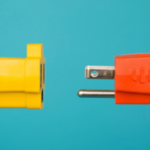The health and wellbeing of Aboriginal people has been described as the great Australian shame[2], and the Australian Department of Health and Ageing[3] identifies Aboriginal men, specifically, as having “the worst health outcomes of any group in Australia”.
Plenty of recent studies of Aboriginal health and wellbeing have examined the effectiveness of Western approaches but they make little attempt at understanding Indigenous worldviews.
The spark for my research came from my employment as a Social Worker and Aboriginal Health Worker in an on-Country men’s health program called ‘Our Way on Country’. The Aboriginal concept of Country refers to the understanding and relationship held by Aboriginal people with the land and the natural environment[4].
Karadi Aboriginal Corporation’s Aboriginal Men’s Group, in partnership with nature-based therapy service provider Adventure Works, delivered a six-month, on-Country health and wellbeing program.
About 40 Aboriginal men living in Southern Tasmania participated in some part of ‘Our Way on Country’, which consisted of events such as Aboriginal cultural activities, spending time on Country, multiple days of camping, evening group events, and adventure activities.
There’s not much research exploring the effects of on-Country therapeutic programs for Aboriginal people, despite nature being a vital component of Aboriginal identity and culture.
On-Country therapy is clearly relevant to current federal and state and territory government initiatives[5] but there is minimal examination of its benefits.
For Aboriginal men, in addition to primary health care[6], having holistic and innovative ways to enhance and maintain their health and wellbeing is important.
These health and wellbeing initiatives should be conceptualised from an Aboriginal worldview and developed by Aboriginal men, like the ‘Our Way on Country’ program was.
Solely Western approaches to Aboriginal health and wellbeing can overlook Aboriginal domains of health and wellbeing such as cultural and spiritual wellbeing.
My PhD research aimed to understand the therapeutic benefits of spending time on Country for Aboriginal men. I conducted 11 interviews to understand their experiences of being on Country.
The encouraging benefits of connecting with Country for Aboriginal men’s health and wellbeing mean service providers should consider this for integration into service delivery.
However, non-Indigenous delivery of on-Country therapeutic programs can be both disempowering for Aboriginal people and perpetuating of the ongoing process of colonisation over Indigenous knowledges.
My research suggests that Aboriginal Community Controlled Health Services (ACCHSs) are better positioned than mainstream providers to integrate Country into service delivery because Country is a unique concept connected with Aboriginal culture and identity4.












